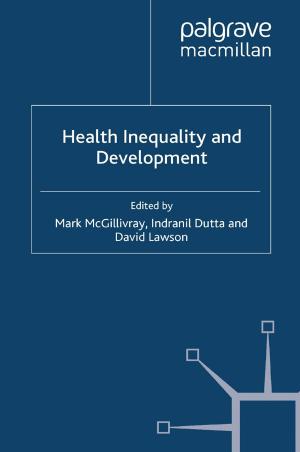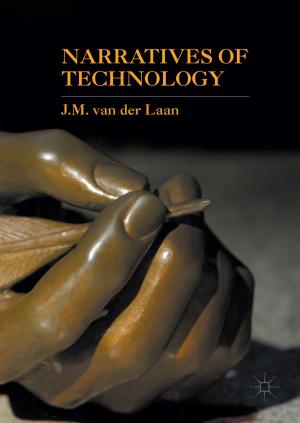| Author: | Stephen Davies | ISBN: | 9781137142368 |
| Publisher: | Palgrave Macmillan | Publication: | May 16, 2003 |
| Imprint: | Palgrave Macmillan | Language: | English |
| Author: | Stephen Davies |
| ISBN: | 9781137142368 |
| Publisher: | Palgrave Macmillan |
| Publication: | May 16, 2003 |
| Imprint: | Palgrave Macmillan |
| Language: | English |
The central doctrine of empiricism - that true knowledge or understanding of the world comes ultimately from sense impressions - has underpinned most of the practices and arguments of historians for the past 150 years. Empirical history has always faced attacks from a variety of other approaches, however, including Marxism, philosophical idealism and, most recently, postmodernism. In spite of this, empirical methods have prevailed, and the study of history remains broadly empirical.
In this concise introductory guide, Stephen Davies:
- explains what historians mean by empiricism
- examines the origins and growth of the empirical method and how it has fought off challenges from other ways of studying the past
- assesses its application to an ever wider range of subjects
- shows how students can apply empirical methods to their own work.
In this concise introductory guide, Stephen Davies:
- explains what historians mean by empiricism
- examines the origins and growth of the empirical method and how it has fought off challenges from other ways of studying the past
- assesses its application to an ever wider range of subjects
- shows how students can apply empirical methods to their own work.
The central doctrine of empiricism - that true knowledge or understanding of the world comes ultimately from sense impressions - has underpinned most of the practices and arguments of historians for the past 150 years. Empirical history has always faced attacks from a variety of other approaches, however, including Marxism, philosophical idealism and, most recently, postmodernism. In spite of this, empirical methods have prevailed, and the study of history remains broadly empirical.
In this concise introductory guide, Stephen Davies:
- explains what historians mean by empiricism
- examines the origins and growth of the empirical method and how it has fought off challenges from other ways of studying the past
- assesses its application to an ever wider range of subjects
- shows how students can apply empirical methods to their own work.
In this concise introductory guide, Stephen Davies:
- explains what historians mean by empiricism
- examines the origins and growth of the empirical method and how it has fought off challenges from other ways of studying the past
- assesses its application to an ever wider range of subjects
- shows how students can apply empirical methods to their own work.















